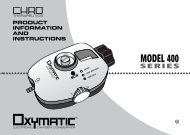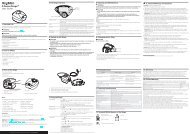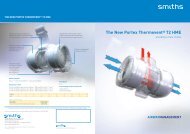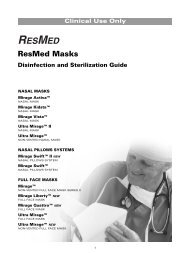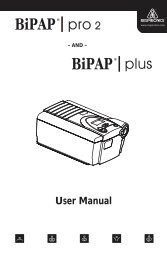IVIG brochure.pdf - NBN Group
IVIG brochure.pdf - NBN Group
IVIG brochure.pdf - NBN Group
You also want an ePaper? Increase the reach of your titles
YUMPU automatically turns print PDFs into web optimized ePapers that Google loves.
<strong>NBN</strong> Infusions is a specialty pharmacy<br />
dedicated to delivering world class comprehensive<br />
homecare services. <strong>NBN</strong><br />
Infusions provides the highest quality of<br />
care, clinical expertise, and patient satisfaction.<br />
We are the “Champions of<br />
Caring.”<br />
It is important for patients to understand<br />
the therapy that they are receiving. That<br />
is why we are here to support you and<br />
help answer any questions you may have<br />
about this therapy.<br />
Would You Like to Know More<br />
About <strong>NBN</strong> Infusions?<br />
Customer Service<br />
1-800-253-9111<br />
856-669-0217<br />
Fax: 856-424-8913<br />
Corporate Office<br />
2 Pin Oak Lane, Suite 250<br />
Cherry Hill, NJ 08003<br />
Princeton Office<br />
116 Village Boulevard<br />
Princeton, NJ 08540<br />
<strong>IVIG</strong><br />
Intravenous Immunoglobulin<br />
Answers to some frequently<br />
asked questions about <strong>IVIG</strong><br />
www.nbninfusions.com<br />
Office Hours<br />
Monday to Friday<br />
8:30 AM to 5:00 PM<br />
<strong>NBN</strong> Infusions, Inc. is privately owned. Our<br />
mission is to integrate a caring approach with<br />
“Champions of Caring”
What are Immunoglobulins?<br />
Immunoglobulins are proteins manufactured<br />
in the body via the blood. They help fight off<br />
harmful bacteria, viruses, pollen and other<br />
invaders. Immune globulin products are<br />
derived from the plasma of a large number of<br />
individuals who have developed antibodies<br />
to various microorganisms. All donors and<br />
their plasma go through careful screenings to<br />
be sure that their blood is safe to use.<br />
What are Primary Immune<br />
Deficiency Diseases?<br />
Primary immune deficiency diseases are<br />
disorders in which part of the body’s immune<br />
system is missing or does not function<br />
properly. This is caused by intrinsic or<br />
genetic defects in the immune system, unlike<br />
secondary immune deficiency disease in<br />
which the immune system is compromised by<br />
factors outside the system (such as viruses or<br />
chemotherapy).<br />
What is the Purpose of <strong>IVIG</strong>?<br />
There are four major classes of antibodies:<br />
• Immunoglobulin G (Ig G)<br />
• Immunoglobulin A (Ig A)<br />
• Immunoglobulin M (Ig M)<br />
• Immunoglobulin E (Ig E)<br />
Each immunoglobulin class has special<br />
chemical characteristics that provide it with<br />
specific advantages.<br />
Antibodies of the Ig G class are formed in<br />
large quantities, last for over a month and<br />
travel from the blood stream to the tissues<br />
easily.<br />
Antibodies of the Ig A class are produced<br />
near mucous membranes and find their way<br />
into secretions such as tears, bile, saliva and<br />
mucus, where they protect against infection in<br />
the respiratory tract and intestines.<br />
Antibodies of the Ig M class are the first<br />
antibodies formed in response to infection. They<br />
are important in providing protection during the<br />
early days of an infection.<br />
Antibodies of the Ig E class are responsible for<br />
protection during allergic reactions.<br />
Is <strong>IVIG</strong> Safe?<br />
Nearly 70% of primary immune deficient<br />
patients use immune globulin intravenous<br />
(<strong>IVIG</strong>) to maintain their health. <strong>IVIG</strong> is a pooled<br />
plasma derivative administered intravenously<br />
every three to four weeks that replaces<br />
antibodies in the patients who are unable to<br />
adequately produce these protective proteins<br />
themselves.<br />
IDF (Immune Deficiency Foundation) works<br />
with the FDA and the <strong>IVIG</strong> manufacturers to<br />
help ensure patient safety and adequate <strong>IVIG</strong><br />
supply.<br />
Can <strong>IVIG</strong> Be Given During Pregnancy?<br />
Yes, and no adjustments to therapy need to be<br />
made.<br />
Can <strong>IVIG</strong> Be Given In Any Other<br />
Way Besides By Vein?<br />
There have been a number of studies over the<br />
years that demonstrate that immune globulin<br />
(IG) can be infused subcutaneously (SQ) under<br />
the skin in restricted volumes, with good clinical<br />
results. Use of SQIG may be a good choice for<br />
those with poor vascular access, very young<br />
children, and those with numerous reactions to<br />
the intravenous infusions. Immunology<br />
specialists will be familiar with this technique<br />
and can advise you whether or not it is<br />
appropriate for you.<br />
In 2006, an immune globulin preparation for<br />
subcutaneous administration was licensed in the<br />
United States.<br />
What Are Some Types of Reactions<br />
to Immune Globulin?<br />
Some reactions are common during the first<br />
infusion of <strong>IVIG</strong> after the diagnosis has been<br />
established.<br />
True allergic reactions are rare and occur early<br />
during the time of infusion and are<br />
characterized by hives, chest tightening,<br />
difficulty swallowing or breathing, feeling<br />
faint, abdominal discomfort and blood<br />
pressure or pulse changes. The first response<br />
should be to stop the infusion. Your medical<br />
provider may then take steps if the symptoms<br />
do not rapidly subside.<br />
Headache, flushing, nausea, vomiting and/or<br />
fatigue are the more common side effects.<br />
These side effects generally occur at higher<br />
infusion rates.<br />
Is It OK to Exercise and Play Sports?<br />
Yes. Physical activity and sports may help<br />
improve your sense of well-being as you<br />
participate in some of life’s enjoyable<br />
activities.<br />
Is it OK to Have Pets ?<br />
Yes, but be aware that animals may carry<br />
infections such as streptococcal infections that<br />
can be transmitted to humans. Also, live<br />
vaccines may be given to domestic pets and<br />
could potentially pose a risk to the person<br />
with primary immunodeficiency.<br />
How is <strong>IVIG</strong> Reimbursed?<br />
Ask your provider for an itemized bill to<br />
clarify any questions, or ask your insurance<br />
company of an Explanation of Benefits (EOB).<br />
Reimbursement for <strong>IVIG</strong> may vary from year<br />
to year and from plan to plan. It is very<br />
important to understand your plan and<br />
coverages.






